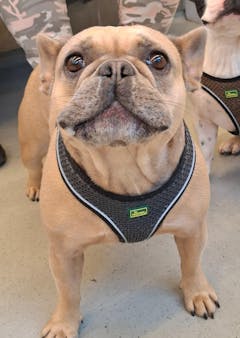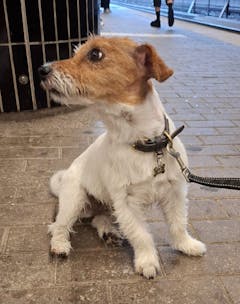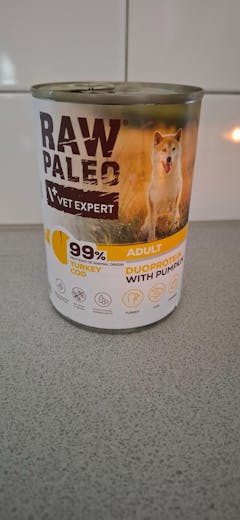Foder för Hudhälsa – Hund
Foder för Hudhälsa Hund: Stöd för Hud & Päls vid Klåda & Allergi
En frisk hud och en glänsande päls är tecken på en hund i god hälsa. Tyvärr är hudproblem mycket vanliga hos hundar och kan orsaka stort obehag med symptom som klåda, rodnad, fjällning och håravfall. På Zoostar.se förstår vi hur viktigt det är att din hund mår bra, och vi erbjuder ett noggrant utvalt sortiment av foder för hudhälsa hund. Dessa foder är speciellt framtagna för att nära huden från insidan, stärka hudbarriären och främja en frisk päls.
Vanliga Orsaker till Hudproblem hos Hundar
Hudproblem kan bero på många faktorer. De vanligaste orsakerna inkluderar:
- **Allergier:** Foderallergier (hypoallergent foder hund är då ofta nödvändigt) och miljöallergier (atopi) är ledande orsaker till klåda och hudinflammation.
- **Parasiter:** Loppor, kvalster och löss kan orsaka intensiv klåda och hudirritation.
- **Bakteriella och Svampinfektioner:** Ofta sekundära till allergier eller skador, kan orsaka rodnad, finnar, skorpor och dålig lukt.
- **Näringsbrister:** Otillräckligt intag av essentiella fettsyror, zink eller biotin kan påverka hudens hälsa negativt.
- **Hormonella Rubbningar:** Vissa sjukdomar, som hypotyreos, kan manifesteras som hud- och pälsproblem.
- **Miljöfaktorer:** Torr luft, starka kemikalier eller för frekvent badning kan irritera huden.
Det är alltid viktigt att konsultera en veterinär för att få en korrekt diagnos och behandlingsplan, då många hudproblem kräver specifika åtgärder utöver foderbyte.
Nyckelingredienser i Foder för Hudhälsa
Foder för hudhälsa hund är rika på specifika näringsämnen som bidrar till en stark hudbarriär och en glänsande päls:
- **Omega-3 & Omega-6 Fettsyror:** Särskilt EPA och DHA från fiskolja, har kraftfulla antiinflammatoriska egenskaper som lindrar klåda och inflammation. Omega-6, som linolsyra och GLA (gurkörtsolja), bidrar till hudens barriärfunktion.
- **Högkvalitativt Protein:** Lättsmälta proteiner är avgörande för hudens cellförnyelse och pälstillväxt.
- **Zink & Biotin:** Viktiga mikronäringsämnen som bidrar till frisk hud, starka klor och god pälskvalitet.
- **Vitamin A & E:** Kraftfulla antioxidanter som skyddar hudcellerna från skador och bidrar till en sund hudbarriär.
- **Prebiotika & Probiotika:** För att stödja en frisk tarmflora, vilket indirekt kan påverka hudhälsa positivt, särskilt vid mage- och tarmsjukdom hund.
Många av dessa foder klassas som veterinärfoder, vilket garanterar att de är vetenskapligt utformade för att möta specifika medicinska behov.
Kompletterande Åtgärder för Hundar med Hudproblem
För att uppnå bästa möjliga resultat vid hudproblem är ett helhetsgrepp viktigt:
- **Veterinär Diagnos:** Börja alltid med att få en korrekt diagnos av din veterinär för att kunna behandla grundorsaken.
- **Behandling av Sekundära Infektioner:** Om huden är skadad, behandla eventuella bakteriella eller svampinfektioner med medicinska schampon eller läkemedel enligt veterinärens ordination.
- **Regelbunden Hud- och Pälsvård:** Använd milda, allergivänliga schampon och borsta pälsen regelbundet för att avlägsna döda hårstrån och främja blodcirkulationen.
- **Kosttillskott:** I samråd med veterinär, kan extra tillskott av Omega-3, zink eller biotin förstärka effekten av fodret.
- **Miljöanpassning:** Minimera exponering för kända allergener (t.ex. dammkvalster, pollen) genom regelbunden städning och tvätt av bäddar.
- **Stresshantering:** Stress kan förvärra hudproblem. Överväg vårt foder för stress/nervositet hund.
- **Viktkontroll:** Övervikt kan förvärra hudproblem, särskilt i hudveck. Se vårt sortiment för viktkontroll för hundar.
- **Regelbundna Veterinärbesök:** För kontinuerlig uppföljning och justering av behandlingsplanen. Detta är även viktigt om din hund har andra specifika behov som foder för diabeteskontroll hund, foder för leversjukdom hund, foder för njursjukdom hund, foder för urinvägsproblem hund, foder för tandhälsa hund, foder för hjärtsjukdom hund eller foder för led- och rörelsehälsa hund.
Ge din hund bästa möjliga förutsättningar för en frisk hud och en glänsande päls med foder för hudhälsa hund från Zoostar.se.
Vanliga frågor om Foder för Hudhälsa Hund
Här besvarar vi några av de mest frekventa frågorna vi får angående foder för hundars hudhälsa.
Vilka är de vanligaste orsakerna till hudproblem hos hundar?
Hudproblem är bland de absolut vanligaste anledningarna till veterinärbesök och kan vara mycket besvärande för hunden. Orsakerna är många och varierade, ofta komplexa och ibland en kombination av flera faktorer. Att identifiera den underliggande orsaken är avgörande för en framgångsrik behandling. Här är de vanligaste orsakerna: 1. Allergier: Detta är den i särklass vanligaste orsaken till klåda och hudproblem hos hundar. - Foderallergi/Foderintolerans: En reaktion mot ett specifikt protein (oftast) i fodret. Symptomen inkluderar klåda (särskilt runt öron, tassar, ljumskar), rodnad, utslag, och mag-tarmproblem. En eliminationsdiet med hypoallergent foder är nyckeln till diagnos och behandling. - Atopisk dermatit (Atopi): En genetiskt betingad allergi mot miljöallergener som pollen, dammkvalster, mögelsporer. Symptomen liknar foderallergi, med intensiv klåda, återkommande öroninfektioner och hudinflammationer. Ofta säsongsbetonat men kan bli året runt. - Kontaktallergi: Mindre vanligt, men kan uppstå vid direktkontakt med irriterande ämnen (t.ex. vissa rengöringsmedel, växter). 2. Parasiter: Olika parasiter kan orsaka intensiv klåda och hudirritation. - Loppor: Orsakar kraftig klåda, särskilt vid loppallergi (där en enstaka loppa kan utlösa en stor reaktion). Ses ofta vid svansroten. - Kvalster: Till exempel skabb (sarcoptes, demodex), öronskabb. Ger intensiv klåda, håravfall, rodnad och sår. - Löss, fästingar: Kan också orsaka klåda och irritation. 3. Bakteriella och Svampinfektioner: Dessa uppstår ofta sekundärt till andra hudproblem (t.ex. allergier, skador) som skadar hudbarriären och skapar en gynnsam miljö för mikroorganismer att växa i. - Bakteriella infektioner (Pyodermi): Orsakas oftast av stafylokocker. Ger rodnad, finnar, skorpor, håravfall och klåda. - Jästsvampsinfektioner (Malassezia): Orsakas av jästsvampen Malassezia pachydermatis. Ger klåda, rodnad, fet/oljig hud, mjäll, dålig lukt och förtjockad hud (elefanthud). Vanligt i öron, tassar och hudveck. 4. Hormonella rubbningar: Vissa endokrina sjukdomar kan påverka hudens hälsa. - Hypotyreos (underfunktion i sköldkörteln): Kan ge tunn, torr päls, håravfall, fjällning och känslighet för infektioner. - Cushings syndrom (överproduktion av kortisol): Ger tunn, skör hud, håravfall, pigmentförändringar och ökad risk för infektioner. 5. Näringsbrister: En obalanserad kost kan direkt påverka hud och päls. - Brist på essentiella fettsyror (Omega-3 och Omega-6): Kan leda till torr, fjällig hud, matt päls och ökad klåda. - Brist på zink, biotin, vitamin A och E: Viktiga för hudens hälsa och immunsystem. 6. Miljöfaktorer: - Torr luft (särskilt vintertid): Kan torka ut huden. - Starka kemikalier/schampon: Kan irritera huden. - Frekvent badning: Kan störa hudens naturliga oljor om fel produkter används. - Otillräcklig pälsvård: Tovig päls kan leda till hudirritationer och infektioner. 7. Stress och Beteendeproblem: Vissa hundar slickar eller biter sig överdrivet på grund av stress, ångest eller uttråkning, vilket leder till sår och infektioner. 8. Andra sjukdomar och tumörer: Även om mindre vanligt, kan vissa systemiska sjukdomar eller hudtumörer manifesteras som hudproblem. En korrekt diagnos av en veterinär är alltid nödvändig för att kunna välja rätt behandling, som ofta inkluderar ett anpassat foder för hudhälsa hund. På Zoostar.se hittar du specialfoder som stödjer din hunds hud och päls, inklusive hypoallergent foder om allergi misstänks.
Vilka näringsämnen är viktiga i foder för hudhälsa och päls?
Foder för hudhälsa hund är speciellt formulerade för att stödja hudens barriärfunktion, minska inflammation, och främja en frisk och glänsande päls. De innehåller ofta en högre koncentration eller specifik balans av vissa nyckelnäringsämnen. Här är de viktigaste ingredienserna du bör leta efter: 1. Essentiella fettsyror (Omega-3 och Omega-6): Dessa är avgörande för hudens och pälsens hälsa, och kroppen kan inte producera dem själv. - Omega-3 (EPA och DHA): Från källor som fiskolja (lax, sardin, ansjovis) och alger. Har kraftfulla antiinflammatoriska egenskaper som hjälper till att lindra klåda, rodnad och inflammation vid allergier, eksem och andra hudproblem. De bidrar också till hudens barriärfunktion och cellmembranens hälsa. - Omega-6 (Linolsyra, GLA): Från vegetabiliska oljor som solrosolja, majsolja, samt gurkörtsolja (rik på GLA) och nattljusolja (rik på GLA). Viktiga för att upprätthålla hudens integritet, minska fuktförlust och främja pälskvaliteten. Balansen mellan omega-3 och omega-6 är kritisk, med ett högre förhållande av omega-3 som ofta är fördelaktigt vid hudproblem. 2. Högkvalitativt protein: Protein är en grundläggande byggsten för hudceller, hårstrån, naglar och antikroppar. - Lättsmälta proteinkällor: Som kyckling, lamm, fisk eller hydrolyserade proteiner (särskilt viktigt vid foderallergier). - Tillräcklig mängd: För att säkerställa optimal cellförnyelse och pälstillväxt. 3. Zink: Ett spårämne som är viktigt för hudens celltillväxt, reparation och immunfunktion. Brist på zink kan leda till torr, fjällig hud, håravfall och försämrad sårläkning. 4. Biotin (Vitamin B7): Ett B-vitamin som spelar en viktig roll i metabolismen av fettsyror och celltillväxt. Brist kan leda till torr hud, håravfall och dålig pälskvalitet. 5. Vitamin A: Bidrar till cellförnyelse och reglering av talgkörtelproduktionen. Viktigt för att bibehålla en hälsosam hudbarriär. 6. Vitamin E: En kraftfull antioxidant som skyddar hudcellerna från skador orsakade av fria radikaler. Har även antiinflammatoriska egenskaper. 7. Andra antioxidanter: Som vitamin C, selen och polyfenoler (från frukter, grönsaker, grönt te) som hjälper till att neutralisera fria radikaler och minska oxidativ stress som kan skada hudcellerna. 8. Prebiotika och probiotika: Även om de inte direkt påverkar huden, bidrar de till en sund tarmflora. En frisk tarm har en positiv inverkan på immunförsvaret och kan indirekt förbättra hudhälsa, särskilt vid allergier och mage- och tarmsjukdomar. 9. Begränsat antal ingredienser (Limited Ingredient Diets): Många foder för känslig hud är utformade med ett minimalt antal ingredienser för att minska risken för reaktioner hos hundar med misstänkta foderkänsligheter. Se vårt utbud av hypoallergent foder hund. När ska man överväga ett foder för hudhälsa? - Vid torr, fjällig hud eller matt päls. - Vid överdriven klåda som inte beror på parasiter. - Vid återkommande hudinfektioner. - Vid misstänkt foderallergi/känslighet (dessa foder är ofta formulerade för att vara hypoallergena). - För hundar med atopisk dermatit som ett komplement till annan behandling. På Zoostar.se hittar du ett brett utbud av foder för hudhälsa hund från ledande märken. Dessa foder, ofta från kategorin veterinärfoder, är vetenskapligt utformade för att ge din hund bästa möjliga stöd för en frisk hud och en glänsande päls.
Hur kan jag hantera min hunds hudproblem utöver att byta foder?
Att byta till ett foder för hudhälsa hund är ett fantastiskt första steg, men för många hundar med hudproblem krävs en bredare strategi. Huden är kroppens största organ och påverkas av många faktorer. Här är viktiga kompletterande åtgärder som kan hjälpa din hund: 1. Veterinärutredning och Diagnos: Detta är det absolut viktigaste steget. Många hudproblem har liknande symptom men helt olika orsaker (allergier, parasiter, infektioner, hormonella rubbningar). En veterinär kan genom tester (hudskrap, blodprover, eliminationsdiet) fastställa den exakta orsaken och ordinera rätt behandling. 2. Hantering av sekundära infektioner: Klåda och skadad hud banar väg för bakteriella infektioner (pyodermi) och jästsvampsinfektioner (Malassezia). Dessa måste behandlas specifikt av veterinär med: - Antibiotika (tabletter eller lokalt). - Svampmedel (tabletter eller lokalt). - Medicinska schampon: Ofta klorhexidin- eller bensylperoxidbaserade mot bakterier, eller ketokonazol-baserade mot jästsvamp. Dessa används ofta som en del av en långsiktig hanteringsplan. 3. Regelbunden hygien och pälsvård: - Badning: Med rätt schampo kan badning lindra klåda, ta bort allergener, minska bakterie-/svampmängden och återfukta huden. Använd alltid produkter rekommenderade för hundar och anpassade för hudproblem. - Borstning: Regelbunden borstning stimulerar blodcirkulationen i huden, fördelar hudens naturliga oljor och hjälper till att ta bort lös päls och smuts. - Klippning: För hundar med lång eller tjock päls, särskilt i värmen, kan klippning hjälpa till att lindra klåda och förebygga hudproblem. 4. Kosttillskott: Utöver vad fodret innehåller, kan extra tillskott vara relevanta (alltid i samråd med veterinär): - Höga doser Omega-3 fettsyror (EPA/DHA): För att förstärka den antiinflammatoriska effekten. - Gurkörtsolja/Nattljusolja: Innehåller GLA som stödjer hudbarriären. - Biotin, Zink, Vitamin E: Om brist misstänks eller för extra stöd. 5. Läkemedelsbehandling vid svår klåda/inflammation: Vid intensiv klåda som påverkar hundens livskvalitet kan veterinären ordinera mediciner: - Kortikosteroider (kortison): Snabb lindring av klåda och inflammation. Bör användas med försiktighet och endast under veterinärkontroll på grund av biverkningar vid långvarig användning. - Oclacitinib (Apoquel) eller Lokivetmab (Cytopoint): Specifika läkemedel mot allergisk klåda, ofta med färre biverkningar än kortison. - Antihistaminer: Har ofta begränsad effekt på hundar med allvarlig klåda. 6. Miljöanpassning (vid miljöallergier/atopi): Om din hund har atopisk dermatit, minska exponeringen för allergener i hemmet: - Frekvent dammsugning (med HEPA-filter). - Tvätta hundens bäddar och filtar regelbundet i varmt vatten. - Använd luftfuktare vid torr inomhusluft. - Undvik att hunden vistas i områden med mycket pollen eller mögel om det är kända allergener. 7. Hantera underliggande sjukdomar: Om hudproblemet är en följd av en annan sjukdom, som en hormonell rubbning, måste den underliggande sjukdomen behandlas. 8. Viktkontroll: Övervikt kan förvärra hudproblem, särskilt i hudveck där fukt och värme skapar en grogrund för infektioner. Se vårt sortiment för viktkontroll för hundar. 9. Stresshantering: Stress kan förvärra hudproblem eller leda till överdrivet slickande. Se vårt foder för stress/nervositet hund. Kom ihåg att hudproblem ofta kräver tålamod och ett långsiktigt engagemang. Genom att kombinera ett lämpligt foder för hudhälsa hund från Zoostar.se med dessa åtgärder och en nära dialog med din veterinär, ger du din hund de bästa förutsättningarna för en frisk hud och en glänsande päls. Vi har även specialfoder som foder för diabeteskontroll hund, foder för leversjukdom hund, foder för njursjukdom hund, foder för urinvägsproblem hund, foder för tandhälsa hund, foder för hjärtsjukdom hund och foder för led- och rörelsehälsa hund som kan vara relevanta om din hund har flera hälsoutmaningar.
FAQ – Foder för Hudhälsa Hund
När ska man välja hudfoder till sin hund och vilka symtom är tydligast vid hudrelaterade problem?
Hudfoder blir aktuellt när hunden uppvisar ihållande klåda, rodnad, mjäll, återkommande hot spots eller när pälsen känns torr, matt eller tunnare än normalt. Många hundar får även sår vid klåda runt buk, armhålor och tassar där huden är som känsligast. För vissa börjar problemen med öroninflammationer eller svamp mellan tårna – ett tidigt tecken på underliggande allergi eller hudbarriärsvaghet.
Hudfoder används för att balansera immunförsvaret och förse huden med rätt fettsyror, framför allt omega-3 EPA/DHA, som minskar inflammatoriska hudreaktioner. När hudbarriären stärks minskar vätskeförlust, irritation och infektionstendens, vilket ger friskare, tjockare päls och lugnare hud över tid. Hundar med återkommande hudproblem får ofta en tydlig förbättring inom 3–8 veckor om dieten följs korrekt.
Vad är skillnaden mellan hudfoder och hypoallergent foder?
Hudfoder är formulerat för att stärka hudbarriären, minska klåda och främja pälsens kvalitet. Fokus ligger på fettsyrebalans (EPA/DHA), antioxidanter, B-vitaminer och zink – näringsämnen som huden behöver för att reparera sig själv. Detta foder kan användas till hundar med känslig hud, torr hud, mjäll, tunn päls eller låg glans.
Hypoallergen foder används däremot främst vid misstänkt allergi eller intolerans och baseras på monoprotein eller hydrolyserat protein. Ett hypoallergent foder kan förbättra hudproblem om de orsakas av allergi – men hudfoder riktar sig direkt mot hudens struktur och immunförsvar även när orsaken inte är allergisk.
En hund som inte svarar tillräckligt på hudfoder kan ofta behöva ett hypoallergent alternativ – eller tvärtom. Rätt val beror på etiologi, inte enbart symtom.
Hur lång tid tar det innan man ser resultat av hudstödjande hundfoder?
Hud och päls regenereras långsamt, och därför behövs konsekvent utfodring i minst 8–12 veckor för full effekt. Fettsyror lagras gradvis i cellmembran och måste ersätta tidigare näringsprofil innan man ser maximal skillnad. Många hundar uppvisar tidiga förbättringar inom 3–5 veckor: mindre klåda, jämnare hud och minskad mjäll. Tydligare pälsförändring – mer glans, mindre håravfall – syns främst efter 10–16 veckor.
Om ingen förbättring skett efter 12 veckor bör foderstrategin utvärderas. Då kan allergifoder, probiotika, medicinsk schamponering eller veterinärutredning behövas som komplement.
Vilka ingredienser gör störst skillnad för hud och päls?
De viktigaste är:
NäringsämneFunktionOmega-3 (EPA/DHA)Kraftfullt inflammationsdämpande, minskar klådaOmega-6Stärker hudbarriären och minskar torrhetBiotin & B-vitaminerStödjer pälskvalitet, celltillväxt & keratinZinkNödvändigt för hudreparation & immunfunktionAntioxidanterSkyddar celler & minskar oxidativ stress
Ett riktigt bra hudfoder har balanserad fettsyraprofil (högt EPA/DHA), gärna fiskbaserat eller med fiskolja som primär fettsyrakälla. Brist på zink, biotin eller omega-3 kan snabbt leda till hudskador – vilket gör dieten till en central behandlingsdel, inte enbart ett foder.
Kan hudfoder användas permanent och behövs komplettering med tillskott?
Ja – de flesta hudfoder är fullvärdiga helfoder och kan ges hela livet. Hundar med återkommande hudproblem mår ofta bäst av att stanna kvar på dieten permanent, eftersom stabil omega-balans och antioxidantnivå minskar risken för skov och hudutbrott.
Tillskott kan vara aktuellt vid svåra fall, exempelvis omega-3-koncentrat, probiotika eller hudolja. Men de bör endast användas som förstärkning till ett hudfoder – inte istället för. Om hunden behöver flera stöd samtidigt är foder + tillskott ofta mer effektivt än att bara höja foderdos.
Regelbunden uppföljning varje 3–6 månad rekommenderas för hållbar hudfunktion över tid.
Husdjursprodukter Online
Utforska fler populära hundkategorier
Här hittar du många av våra mest efterfrågade kategorier – från hundfoder och godis till tillbehör, vård och aktivering.
Ledande Fodertillverkare
Populära hundfodermärken
Här hittar du våra mest populära hundfoder – från spannmålsfritt till veterinärfoder. Klicka på ett varumärke för att se hela sortimentet.






